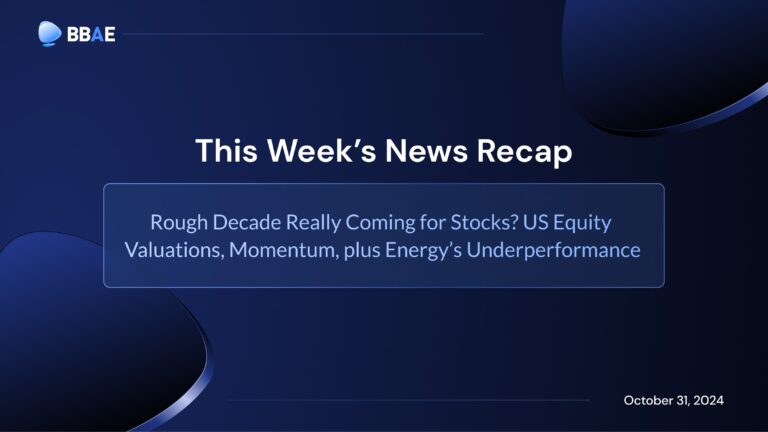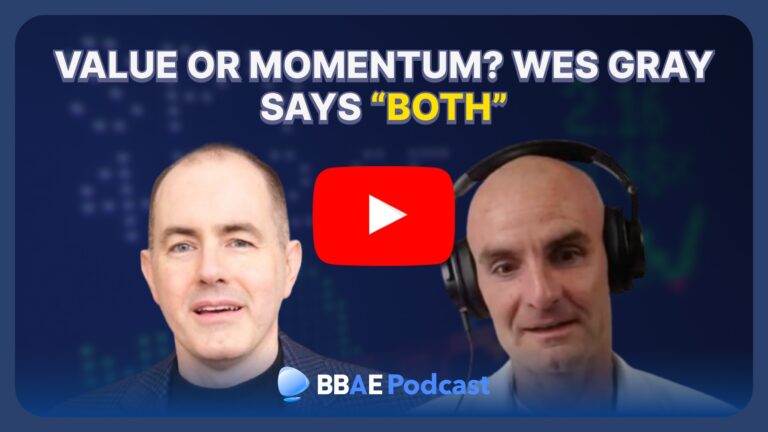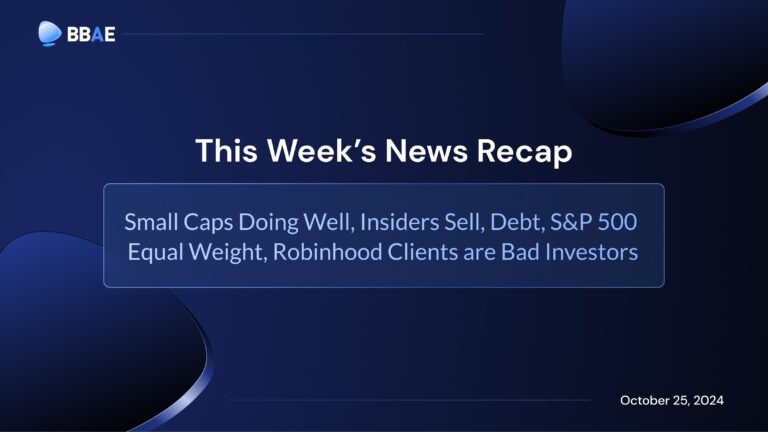Investors’ 5 Biggest Blind Spots
“I don’t care. Just tell me what stock to buy.”
If I had to guess, I’d say this is the most common sentiment among individual investors.
I’m not faulting anyone for saying or feeling this.
By numbers, most people who invest are into investing a little bit, but not a lot. They – and plenty of professional fund managers, too – almost invariably don’t appreciate the social science aspect of investing.
I’ve laid out what I feel are the five biggest blind spots in investing. If you don’t have one or more, great! I have certainly suffered from each of these blind spots, many times.
Blending my decades of anecdotal experience with academic research, the areas below are what investors tend to “miss.” The upside is that every “miss” by one investor creates an exploitable opportunity for another.
Let that be you.
5 Things Investors Tend to Miss
- Saving, living below your means, and earning a good income (massively) trump investment decisions for most people, even though there are exceptions. My single most important piece of investment advice has nothing to do with actual investing. You need money to invest; you can earn it, inherit it (or steal it, I suppose), but if you’re earning $1,000,000 post-tax and spending $1,000,001, you’re on track to a retirement shock relative to the person earning $100,000 and spending $60,000. The real difference is not $39,000 – it’s $39,000 compounded year after year after year. Plus, high earners who save next to nothing are in for a huge lifestyle shock come retirement relative to those habituated to living on less.
- The only value that gets rewarded is unexpected value. You could say disproportionately rewarded if you like, depending on how you define “reward.” I haven’t swilled alcohol in decades but I remember massively overtipping once at a bar in college (I don’t remember if this was deliberate or if I handed the bartender a twenty thinking it was a ten – before realizing it was a twenty when I saw the smile on his face). Anyway, he was so taken by my generosity that I drank for free for the rest of the night. I got a better deal than had I not overtipped. Life won’t always work like that, but markets operate on this same principle. Expected things – expected benefits and expected risks – are priced into stocks.
Unexpected things are not.
Pretend your name is Average Investor. You’re not such a person, of course – BBAE Blog readers are not average. But pretend you were: You’d expect the same things as the market and pay the market price for a stock (and probably drive a Honda Accord, too). You’ll get a ho-hum risk-reward profile.
In financial theory, this ho-hum risk-reward profile means you’d be largely indifferent between not investing and investing, weird as that sounds. In real life, of course, we invest in individual stocks because we think the market is wrong: Either it’s underappreciating a company’s awesome future or it’s overblowing one or more risks.
The point is this: If you’re investing in stocks, you’d better have some “unexpected” thing in mind – and have a view of why you’re right and the market’s wrong.
“Unexpected” may not be the best wording because it implies you’d be seeing some unseen event. The odds of this are low. One more practical – but boring – definition of “unexpected” might be that you either have more confidence about expected good events happening than the market does (“unexpectedly certain,” we might rationalize this as) or have more confidence about bad things not happening than the market is.
The hard part, of course, is that your divergent view must be right. (Or lucky.)
- The very best thing to bet on is mankind’s ability to add economic value over time. Drug approvals happen or don’t happen. New products are sometimes hot and sometimes miss. Mergers happen. Mergers blow up.
My favorite companies are “no thesis” companies – companies that can just keep on doing what they’ve been doing to succeed. They don’t need a drug approval, a blockbuster movie, a fashion trend, or anything binary to succeed.
Further along these lines, one might argue, is broad-market indexing: At least in the relatively stable US, the broad stock market has appreciated to the tune of roughly 10% per year in nominal terms and 8% in “real” (inflation-adjusted) terms over the past century or so. Index investing (you can do it with the MarketGrader managed account portfolios available on BBAE) gives you exactly zero chance of becoming one of those “janitor retires with $20 million thanks to putting all his savings into the right stock”-type stories used to advertise investment newsletters, but if you start early enough and do it diligently, indexing can definitely make you rich.
The problem? It’s boring. It feels too easy to just buy and hold a boring index. It’s not smart-sounding. Cognitive bias can magnetize us to sophisticated, conceptually elegant, or hard-won solutions. We value them more. Unfortunately, they are exactly the opposite of what we want in investing – and in business, where Warren Buffet says that any IQ points above 120 are wasted.
- Successful investing is about exploiting the cognitive weaknesses of other investors. Yes, I just said that unexpected value was necessary for success, and I mean that. Think of this as a variant. The market is pretty smart, by definition – it usually prices assets correctly. If it didn’t, investing would be so wildly random as to not be fun). But sometimes the market can act stupid.
Investors get caught up in frenzies (thankfully for opportunistic investors, humans are herd creatures and are willing to deny the obvious length of a line for the sake of fitting in). Investors become despondent when frenzies end, and they sell. Investors are far from rational.
So your job is to exploit that. Impatience may be the easiest cognitive defect to exploit: In a broad market sense, you tend to win if you can hold on longer. Holding on also sidesteps a secondary cognitive bias: The (incredibly strong) tendency to pile into assets after long periods of good returns, and bail on them when times get tough.
If you’re an active investor – “active” meaning someone who picks individual investments, versus a frequent trader – you should salivate when you hear studies of how irrational investors are. Think of them as your prey. Their irrationality creates the mispricing that makes you money.
- Market value comes from adding either economic value or anticipated economic value. At least this is how it should be. Sometimes, price momentum, crowd psychology, and Greater Fool thinking create value (value that tends to be easy-come, easy-go) . The stock market is anticipatory – just how anticipatory varies with the market mood, and with the size of the thing being anticipated (the market is willing to make effort to anticipate bigger trends further in advance). Upside from a stock happens for two reasons:
- Actual economic value (or precursors to economic value) ended up better than anticipated: A company beat Wall Street’s revenue or earnings estimates, for example, or a bad thing either didn’t materialize, or materialized to a lesser degree than expected. Both of these means the company created more economic value than expected.
- Expected future economic value increased. This works, too, but is squishier: A company might announce a cool new product in development. A forthcoming legislative change could mean more profits for a particular industry. A new technology promises to change the world. If a new value-adding possibility jumped onto a company’s runway, investors will bid up the stock.
Both of these are legitimate stock-price propellants, but actual value tends to be more defensible and holds up better when the going gets tough. Cash in the bank is worth more than cash that might come into the bank one day.
These points probably sound obvious and non-obvious at the same time. Regardless, I consider them among my most important investing concepts because I’ve observed that most people think about investing incorrectly – usually by missing the social science part of it.
From one lens, it’s disheartening: People are people, and people never seem to be able to escape human nature. But from another lens, this is exactly why exploitable investment opportunities exist for those who find a way to.
This article is for informational purposes only and is neither investment advice nor a solicitation to buy or sell securities. All investment involves inherent risks, including the total loss of principal, and past performance is not a guarantee of future results. Always conduct thorough research or consult with a financial expert before making any investment decisions. Neither the author nor BBAE has a position in any investment mentioned.














